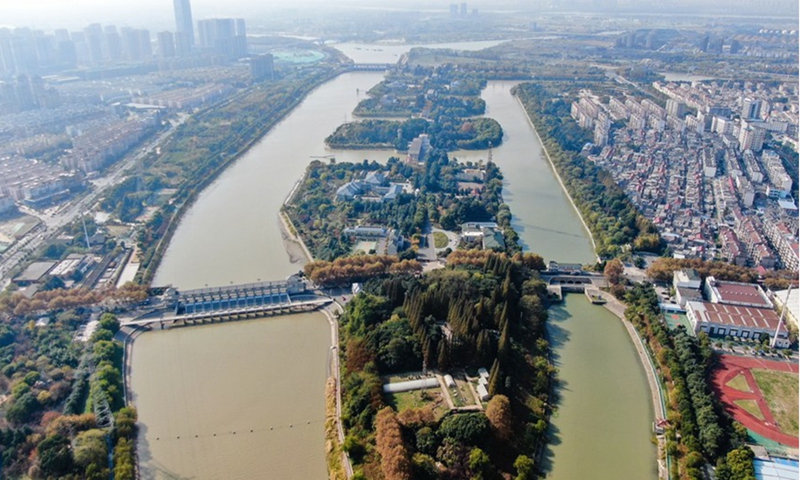3,335 detained for destroying ecological and environmental resources along the Yangtze River Economic Belt
Source: Global Times Published: 2020/12/14 14:53:40

Aerial photo taken on Nov. 14, 2020 shows the Jiangdu Key Water Conservancy Project in Yangzhou, east China's Jiangsu Province. (Xinhua/Ji Chunpeng)
The latest procuratorial white paper shows that 3,335 suspects involved in 2,140 criminal cases were detained for destroying ecological and environmental resources in 11 provinces along the Yangtze River Economic Belt in China between January and November this year.
According to the white paper, procuratorial organs have severely punished those who committed crimes involving the destruction of ecological environment and resources, and intensified their crackdown on illegal mining, environmental pollution, illegal purchasing, and transporting and sales of rare or endangered wild animals and their products.
In addition, the authorities prosecuted 13,358 cases involving 22,543 people during this period.
Meanwhile, the authorities have intensified the handling of public welfare litigations in the field of ecological environment and resources. The procuratorial departments in the 11 provinces have dealt with 30,930 related cases between January and November, up 15.38 percent year-on-year.
The authorities also strengthened their crackdown on illegal fishing in the Yangtze River basin. 14 provincial- and city-level procuratorial departments detained 1,470 suspects involved in 915 cases and prosecuted 10,052 people in 6,276 cases between January and November.
Moreover, the authorities urged the restoration of 177,400 mu (11,827 hectares) of forests, farmland, wetlands and grasslands that were polluted, damaged or illegally occupied.
A total of 133,400 mu of water sources have been removed of potential pollution hazards or restored from pollution, and 4,437 enterprises and farms that caused environmental pollution have been regulated.
The white paper was released during the third forum held by procuratorial organs in Huzhou, East China's Zhejiang Province, last Friday, to ensure "green mountains and clear water are as good as mountains of gold and silver" and to secure the development of the Yangtze River Economic Belt.
RELATED ARTICLES:
Posted in: SOCIETY